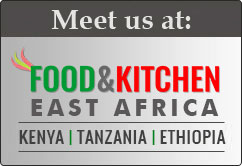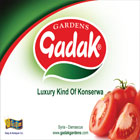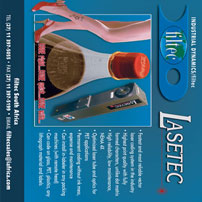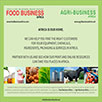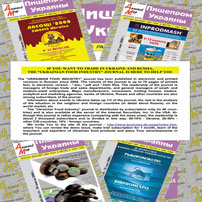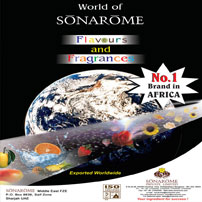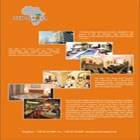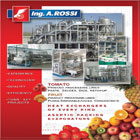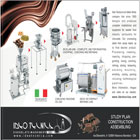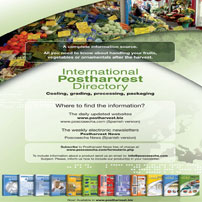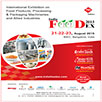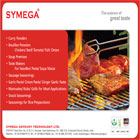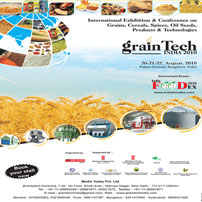

M a r k e t N e w s
Tanzania: Grain Silos Helping Farmers Eliminate Post-Harvest Losses
Posted on : Tuesday , 17th January 2017
Malahi Chalahani seems to win a race this year. Njire Jibusa and his wife Mwashi Kapimitilo are also confident to win the same race. Likewise, Yohana Samson and his wife Saru Lameck.
All of them are farmers in the ward of Msowero, Morogoro-District. And they all just installed a metal silo. In August last year, after harvest, they stored some 500 kilogrammes of maize in it and closed the silo hermetically. In February, they will most probably open the silo again and sell the maize at a favourable premium. And this is, what allows all of them to win every year's race starting in August. It is a race against time. Against insects like the large grain borer and the small weevil. It is a race against falling market prices and a race against poverty and hunger.
While the prices are seasonally being pushed down in August by the increasing quantities available on the market, farmers are forced to sell, whatever is exceeding the demand of their families because they lack additional storage facilities and are afraid of loosing too much of their precious maize to the many insects eagerly waiting to dive into the piled corn.
Farmers like Malahi, Njire and Mwashi, Yohana and Saru only sell their surplus to the market and store the maize needed for the family in the traditional Kahenge, in woven baskets, barrels or in simple bags. Due to the rather bad storage-facilities and technologies used, most farmers embark on another unpredictable journey throughout the following months up to the harvest, because partially maize gets lost or is spoiled by the insects.
While most farmers already lost the first race against sinking prices, later they are also prone to loose the race against hunger and food insecurity as pests and insects can take away up to one third of the initially stored maize.
A serious issue
Thus ending food insecurity is not only about increasing production, but to increase efficiency in the way that food is handled, transported, stored and processed from its way from the farm to fork.
In research, loosing food while it is produced, transported, stored and processed is defined as food loss. If someone eats half of it and throws away the other half, researchers rather talk about food wastes. Both together are considered as post harvest losses or PHL in short, an abbreviation frequently used in the last couple of years to talk about the need to fight for more food.
And the overall figures are alarming. In 2011, the WorldBank estimated the value of the annually lost grain production in Eastern and Southern Africa alone at 1,6 billion USD - the equivalent of 13,5% of the value of total production. Along the food-supply chain, one third of the grains produced are lost again - in Sub-saharan Africa partially because the infrastructures are missing.
According to several research-projects, there are six major factors that increase the risk of loosing food: Disjointed smallholder farmers, limited knowledge among farmers of postharvest management and use of state of the art technology, lack of proper storage technologies and equipment, lack of structured markets, limited access to affordable finance and unfavourable policies.
Although Tanzania is by numbers a food-self-sufficient country, there are many people suffering from food insecurity - especially in the Central Corridor, the regions between Dar Es Salaam and Mwanza. And one of the key reasons was and still is the high postharvest losses.
Unlock financial resources first
Back in 2013, Swiss Agency for Development and Cooperation (SDC) issued a call for proposals. It was time to tackle the issue and address the high postharvest losses in the Central Corridor. And it was NGO Helvetas Swiss Intercooperation that responded in the most appealing way to SDC as it came up with the Grain Postharvest Losses Prevention Programme (GPLP).
In the beginning, "the GPLP team did full analysis of each foreseen partner," Vera den Otter explains. She was in 2014 Technical Advisor to the project and paved the way to implement measures like the metal-silo. And it was this analysis, that led to a project with different stakeholders, such as the government, farmers lobby group ANSAF, artisans and of course, farmers. But while challenges and driving forces are pretty well defined, with the setup of the project and the initial idea to promote metal silos, the real struggle just begun.
Artisans who were supposed to build the silos in the rural areas had to be trained first. Second, farmers needed to be convinced and trained to use the new technology and, third, they had to be enabled to pay for the expensive new tool.
To facilitate the access to the silos, Helvetas did facilitate the setup of Village Community Banks, which is a saving and lending scheme where villagers put money together and buy shares to receive short-term credits and loans thereafter. To introduce the new technology, in different villages farmers were selected to demonstrate the new way to store grains. One of them says "In the beginning, I did not believe that the project and the silo would help anything to fight postharvest losses."
Due to the demonstrations and the way the project did and still does involve the people, he changed his mind.
"I like the silo very much. It is a very good technology and is easy to use." Hence the silo is more expensive to purchase, compared to other technologies like improved plastic-bags, plastic-barrels and other ways to hermetically store corn, it is more cost-effective.
"The silos last longer, on average some 15 to 20 years," Daniel Kalimbiya explains. He is Deputy Country Director for Helvetas in Tanzania and together with Lugendo Msegu responsible to implement the GPLP-Project. Although the silos require a higher investment in the beginning, they are more cost-effective in the long run, says Vera den Otter, who did the preliminary analysis on the project.
The silo as a game-changer
And the silo is not only more sophisticated to protect the maize, it is a real game-changer. First, it replaces traditional storage-facilities like the Kahenge. Although this means a partial cultural loss, it makes farmers less prone to food insecurity.
Second, in the silo no pesticides are needed to store the maize, which is lowering the risk of being poisoned and also lowers the costs for storing the grain. Third, the silo also helps to empower women, because they are mostly responsible to farm and fill the plates every day.
Men on the other hand often decide what to do and when to sell. With the silo, women have the possibility to say no to their husbands' decision or at least to have their say and state their opinion. Ofcourse this is accompanied by tensions in the tribal cultures, but it is seen as the way forward.
Fourth, the silo also serves as a collateral, enabling farmers to access loans and credits easier. The silo also increases the bargaining-power of farmers. The race against the falling prices during harvesting-season is no longer an issue, as farmers can store their grains on their own and sell it, after prices rise again, thus enhancing their economic performance and finally improving their livelihoods.
Or as Njire Jibusa says while standing in front of the silo: "Without the project, I could not have known those things." And it is no surprise that he feels good using the new technology.
"I'd like to have many silos," he adds with a smile.
Source : allafrica.com


